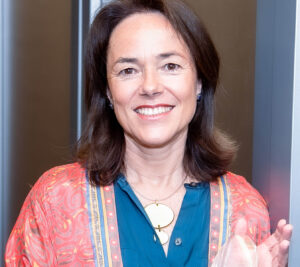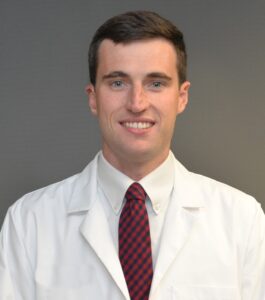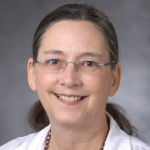Carola Vinuesa, MD, PhD, Honored with Lupus Insight Prize
 In June 2023 at the 23rd Annual Meeting of the Federation of Clinical Immunology Societies (FOCIS), Carola Vinuesa, MD, PhD, a Royal Society Wolfson fellow and assistant research director at the Francis Crick Institute, London, was awarded the Lupus Research Alliance’s Lupus Insight Prize. The $100,000 prize recognized her discovery of a genetic cause of lupus, thus paving the way for the development of novel treatments for those who have the disease.
In June 2023 at the 23rd Annual Meeting of the Federation of Clinical Immunology Societies (FOCIS), Carola Vinuesa, MD, PhD, a Royal Society Wolfson fellow and assistant research director at the Francis Crick Institute, London, was awarded the Lupus Research Alliance’s Lupus Insight Prize. The $100,000 prize recognized her discovery of a genetic cause of lupus, thus paving the way for the development of novel treatments for those who have the disease.
Dr. Vinuesa’s team used an uncommon approach to identify a novel disease-causing variant. “The classic approach has been to look for common variants in large populations of patients—genome-wide association studies (GWAS),” she said. They posited that sequencing the genome of a 7-yearold girl who presented with severe lupus—and whose parents did not have the variant—might lead to discovery of a monogenic pathway. And indeed, said Dr. Vinuesa, proceeding directly to putting this variant into a mouse model revealed that the TLR7 gene mutation did cause lupus in the mouse model. These findings (“TLR7 gain-of-function genetic variant causes human lupus”) were published in Nature in April 2022.
Dr. Vinuesa’s work at the Crick Institute focuses on using new tools, including novel mouse lines, to specifically explore questions aimed at the origin of autoantibodies and B cell tolerance. Simultaneously, her team is “trying to understand in depth the additional modifiers that contribute to the disease’s heterogeneity.
“We call lupus a prototypic system autoimmune disease, so I think that some of these discoveries will be relevant for other systemic autoimmune diseases, such as dermatomyositis, systemic sclerosis and perhaps Sjögren’s and others,” she says.
Dr. Vinuesa’s path to her current post began with an early passion to pursue medicine to help those in need. “I felt torn between science and medicine,” she recalls, and went into medicine with the idea of working with nongovernmental organizations, such as Médecins Sans Frontières (Doctors Without Borders). She obtained her medical degree at the University Autonoma of Madrid in 1993 and moved to the U.K. to complete her internships with the National Health Service. She then realized that she would be better suited to contribute via research, so she began her doctoral work in immunology, training with Ian MacLennan, emeritus professor of immunology at the University of Birmingham, and completed her doctorate in 2000. As a Wellcome Trust International Traveling Prize Research fellow, she also did postdoctoral work at the Australian National University (ANU), followed by a professorship in immunology at the ANU in 2010. She co-established and co-directed the NHMRC Centre of Research Excellence in Personalised Immunology, a position she held from 2014 to 2021, and joined the Crick Institute in September 2021.
“This is an incredible environment in which to take risks and do big things,” Dr. Vinuesa enthused about her current affiliation. “Because of the interdisciplinarity and the scientific technical platforms, we are able to do things I couldn’t have done before.”
Updated on May, 10, 2024, to correct Dr. Vinuesa’s titles.
Michael Allen, MD, Has Joined Division of Rheumatology at Albany Medical Center
 Last fall, Michael Allen, MD, joined the Division of Rheumatology at Albany (N.Y.) Medical Center, moving from his last post at Arthritis Care P.C. in Clifton Park, N.Y. Dr. Allen obtained his medical degree from the American Medical Program at Tel Aviv University, Israel. He did his internal medicine residency at Icahn School of Medicine at Mount Sinai, New York, and it was there that he began to think seriously about specializing in rheumatology.
Last fall, Michael Allen, MD, joined the Division of Rheumatology at Albany (N.Y.) Medical Center, moving from his last post at Arthritis Care P.C. in Clifton Park, N.Y. Dr. Allen obtained his medical degree from the American Medical Program at Tel Aviv University, Israel. He did his internal medicine residency at Icahn School of Medicine at Mount Sinai, New York, and it was there that he began to think seriously about specializing in rheumatology.
“The more I learned about rheumatology, the more I realized it was a true internal medicine subspecialty because it covers so many different organ systems and provides a combination of treating multiple organ systems and viewing patients as a whole.”
Like many rheumatologists, Dr. Allen recalls a particularly complex case that contributed to his fascination with rheumatology. While he was at Mount Sinai, a young woman presented with adult-onset Still’s disease and developed macrophage activation syndrome, which led to liver and kidney failure. After a time in the intensive care unit, however, she was saved—by the rheumatologist who treated her. It was emblematic, Dr. Allen says, of the kind of “diagnostic mysteries that keep us rheumatologists interested in our field. One of the other things about our field is that there is such a variety of approaches—it is truly not a one-size-fits-all type of specialty.”
Dr. Allen completed his fellowship in rheumatology at Columbia University Irving Medical Center, also in New York. At Albany Medical Center, he has a special interest in pulmonary manifestations of rheumatic diseases, including rheumatoid arthritis-associated interstitial lung disease, dermatomyositis, scleroderma and sarcoidosis.
As a member of the medical advisory board for the Steffens Scleroderma Foundation, Albany, N.Y., Dr. Allen has been helping organize annual Interdisciplinary Professional Education Events. Patients with scleroderma volunteer to lead classes for various specialists—physicians, dentists, pharmacists, and physician assistants—to share and educate the providers about the realities of living with the disease. Dr. Allen’s roles in this include recruiting patients with scleroderma to participate, providing lectures to students in advance of the events so that they have a background in the recognition and treatment of scleroderma, and participating in the expert panel during the event.
“People who have been diagnosed with these conditions experience a lot of difficulty when navigating the healthcare system,” he says. “The goal is to expand the knowledge in allied health professions as well as the medical field. For example, skin thickening on the face means that scleroderma patients have trouble opening their mouths very wide, so receiving quality dental work is difficult.”
The foundation plans to expand the event to different locations.
Dr. Allen believes that volunteering is important, even for physicians who are new to their practice. “If you get anything from being a practicing doctor, you’re given a voice, and using that voice is important. There is so much unmet need in so many different arenas; I think it’s our responsibility to do our best to help where we can.”
Gretchen Henkel is a health and medical journalist based in California.



